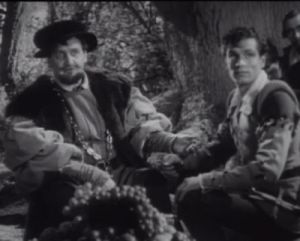BBC: Blair admits resignation mistake:
UK Prime Minister Tony Blair has acknowledged it may have been a “mistake” to announce he would not be serving a fourth term in office.
“People kept asking me the question so I decided to answer it. Maybe that was a mistake,” he told Australian radio after attending the Commonwealth Games.
Later Downing Street said what he meant was it was a mistake to expect the announcement would end speculation.
I can see a couple of possible reasons why this might be newsworthy: Downing Street can’t help living up to their reputation for spin, backtracking what Blair said; and the sheer idea that Blair has admitted to a mistake about anything.
But this off-hand, drowned out comment doesn’t affect public policy one jot. It also doesn’t even have an implication for the increasingly tedious and over-written “will-they-won’t-they” question about when Gordon Brown – John Major to Blair’s Mrs T. – will take over. So why is it the top story on the BBC, the front page story in theguardian, and all over Sky?
Apropos of nothing, I thought I’d mention one of those passing (and very tenuous) Doctor Who/Liberal Party connections that one comes across from time to time.
 Henry Ainley was well known on the London stage at the beginning of the twentieth century. He made a few early ilms, including a silent version of The Prisoner of Zenda and As You Like It in 1936 (pictured right), his final film, which starred a young Laurence Olivier (with whom, it’s been claimed, Ainley had a brief fling) and John Laurie, who would later join Dad’s Army. Ainley grew up in Morley, Leeds and had several children, one of whom was Anthony Ainley, best known as the Master in 1980s Doctor Who (and was the first panellist I ever saw at a Who convention).
Henry Ainley was well known on the London stage at the beginning of the twentieth century. He made a few early ilms, including a silent version of The Prisoner of Zenda and As You Like It in 1936 (pictured right), his final film, which starred a young Laurence Olivier (with whom, it’s been claimed, Ainley had a brief fling) and John Laurie, who would later join Dad’s Army. Ainley grew up in Morley, Leeds and had several children, one of whom was Anthony Ainley, best known as the Master in 1980s Doctor Who (and was the first panellist I ever saw at a Who convention).
Also from Morley was sometime Liberal Prime Minister Herbert Asquith. Asquith lost his East Fife seat in the 1918 General Election but returned to the Commons in a 1920 by-election in Paisley. After that victory, Ainley sent him the following note:
This letter needs no acknowledgment please; it is merely a thanksgiving of congratulation from one Morley man to another; “the Lord hath wrought great glory.”
Google tells me the quote is from Ecclesiasticus, chapter 44. Ainley also performed a poem by Asquith’s son Herbert on BBC Radio in 1931.
Today, I am mostly channelling Jonathan Calder.
One of my concerns about the smoking ban in Scotland, which comes in force on Sunday, is the prescriptive regulations being placed on businesses. They are required to display non-smoking signs meeting statute-set criteria for size and content. Given that the vast majority of workplaces will be non-smoking, it might have been less burdensome to require smoking areas to be signposted. This regulation requires employers to be aware of the new law; why can’t the same requirement be placed on members of the public? Shops don’t, after all, have to put up signs saying, “No stealing” – some do, of course (“Shoplifters will be prosecuted”, etc.), but that’s their choice. Workplaces like my own, which were already non-smoking, will now have to display signs even though their status hasn’t changed. This applies to all workplaces that are covered by the legislation – so if you’re a partnership, neither of you smoke and you’re the only people using your office, you’re still required to display these signs (and needless to say that even if both of you smoke, you have to go outside your office to do it).
I spotted one such No Smoking sign outside a shop on Dalry Road as I walked to the station this evening. It was a signwriter’s, showing off their wares. At least that’s one type of business that will benefit from the ban.
As usual when I arrived on the platform at Haymarket I had to walk through the smoke of the two women who insist on standing at the end of the bridge smoking. I wonder I’ll find the law being enforced at the same time on Monday.
Finally, and apologies for being lavatorial, but there has been one positive change at Haymarket already. The gents toilets, which were pretty rank, have had the floor resurfaced. They’re still not that pleasant, but it’s an improvement at least. First Scotrail – for I assume it was them – do at least seem to be making an effort.
As we all know, it’s not about left and right these days, but nevertheless, here, thanks to BBC scheduling, is one simple question to sort the pinkos from the Francos.
At 9pm tonight, are you more likely to watch BBC One (To Kill a Burglar: The Tony Martin Story*) or BBC Two (The Plot Against Harold Wilson)?
*not Scotland



Recent comments